Over two decades ago, an Asian elephant named Motala stepped on a landmine and got her left front leg seriously injured. She limped for three days before she was rescued by a special hospital in Thailand.
Fitted with a prosthetic leg, she was taken care of for over 20 years.
Every morning and afternoon, 61-year-old Motala walks around the lawn outside her tent for a while.
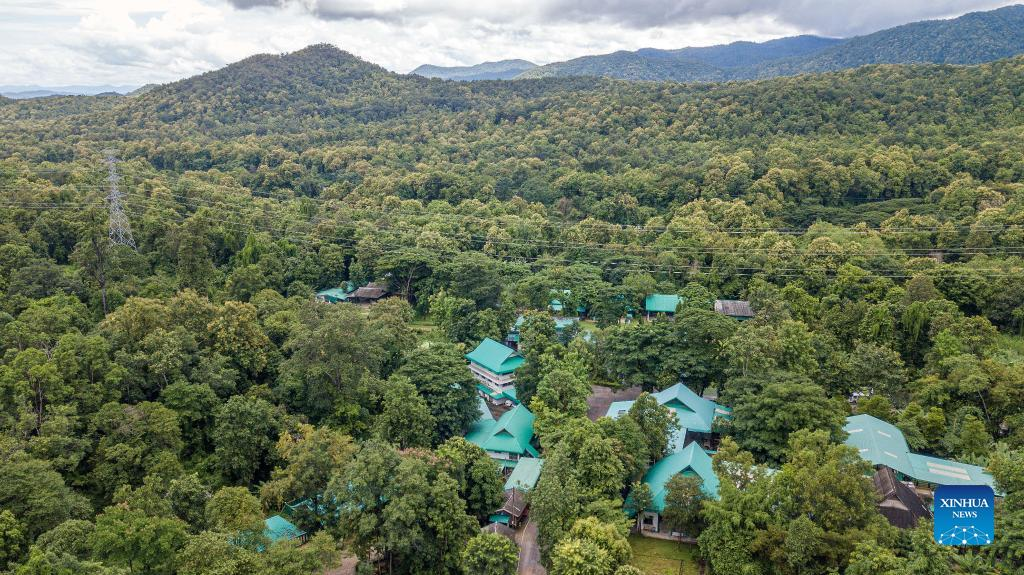
Deep in the forest of Lampang province in northern Thailand, the hospital, named Friends of the Asian Elephant (FAE), is the first hospital in the world dedicated to treating injured elephants.
Since its establishment in 1993, the hospital has saved more than 5,000 elephants with illnesses varying from diarrhoea to eye diseases and injuries through car accidents or mine explosions.
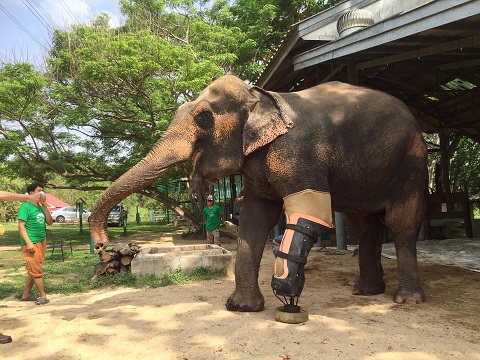
Prior to the World Elephant Day, Soraida Salwala, 66, who has dedicated half of her life to saving those giant creatures, talked about the friendship with elephants.
“The hospital is my home, and the elephants are my children,” she told Xinhua in an interview.
Her story began when she was eight years old. She encountered an injured elephant lying on the side of the road as it was hit by truck.
“I cried and begged my dad to take him to the hospital, but he told me that it was too big to be received, and no one knew how to save it. Finally the elephant died,” Soraida said, recalling with sadness.
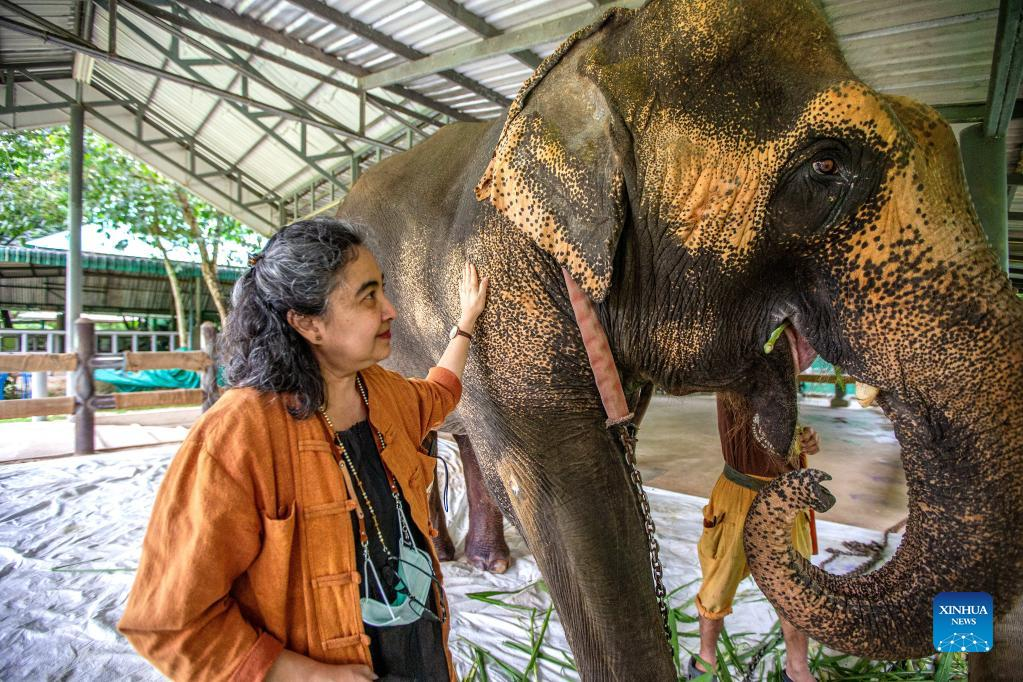
Many tragedies, like this, inspired her to build a hospital specialized in saving injured elephants.
Soraida takes with her a red walkie-talkie in pocket all along. When an elephant growled in distance, she used walkie-talkie, saying, “Mosha, it’s mama Soraida, stay put.”
Given years of companionship, a special bond was established between Soraida and her elephants. She said that they can understand her words and sometimes respond by patting the ground with their feet.
Mosha lost her right front leg when she was only seven months old after treading on a landmine. Two years later, doctors fitted her with her first artificial leg, making her the first elephant in the world to walk with a prosthetic leg.
As she grew, Mosha went through more than 10 prosthetics to adapt to her weighing body. She is turning 17 this year and has become very strong, only behaving a little grumpy as she enters adolescence.
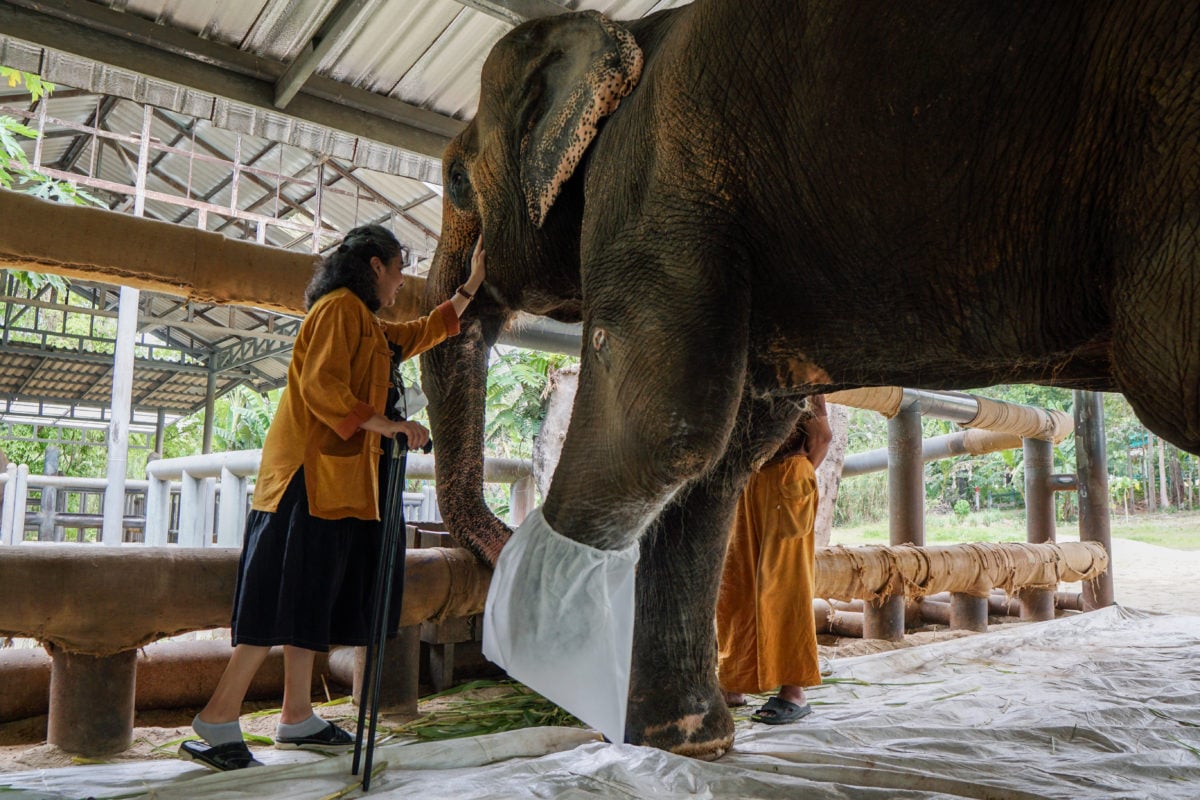
“She is a naughty girl,” Soraida said, while approaching and stroking Mosha gently. After whispering to her. Mosha gradually calmed down, leaning her head against Soraida.
A total of nine elephants are currently receiving treatment here, of which five are “permanent residents.” Many elephants were given to the hospital because their owners could not afford to take care of them.
Taking care of elephants is costly. The hospital spends roughly 800,000 baht (about 22,617 U.S. dollars) monthly, with its expenses relying solely on community donations.
Soraida said the hospital had been struggling to make ends meet for more than a decade, and was on the verge of closedown five years ago due to a lack of funds.
In the most difficult time, 50 baht was left in the bank account. She had to raise money on social media. With media reports, donations poured in, and 40 million baht was raised in just a few days.
In addition, more veterinarians are needed for the hospital, which now has only one veterinarian, Cruetong Kayan.
The 41-year vet has been working here for 16 years and has saved more than 3,600 elephants. She practised here when she was a medical student, after which she decided to work with Soraida and devote herself to saving elephants.
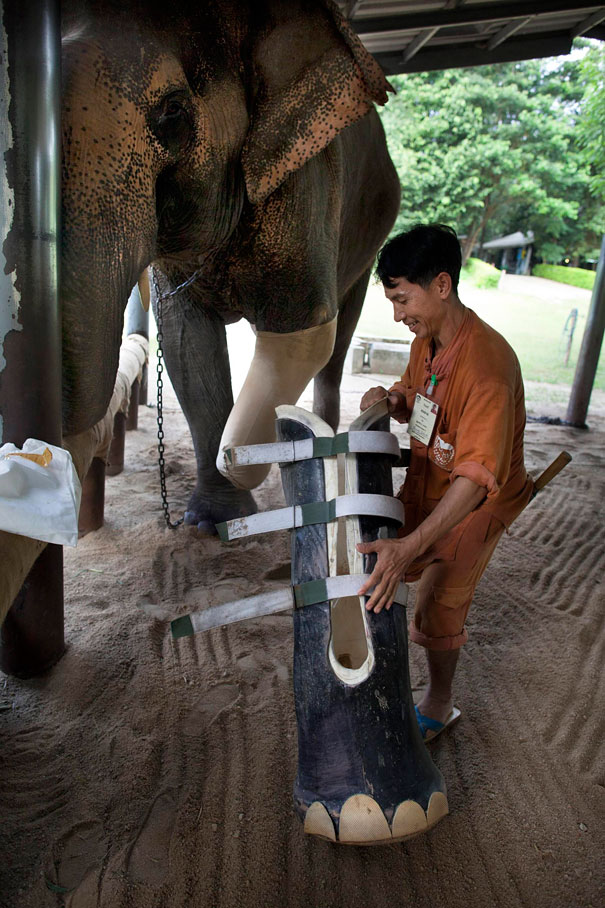
Soraida admitted that not everyone was willing to work in the forest far away from a busy urban area, and COVID-19 made it more difficult for the hospital to operate.

The hospital now has 17 resident staff members, down from before the pandemic. “The pandemic is putting everyone under economic pressure, and so are our donors,” Soraida said, hoping to cut costs for keeping the hospital for a longer time.
Over the years, Soraida has received death threats for standing up against elephant trafficking, but this has never changed her mind.
“Everything the hospital has done for nearly 30 years has been to improve the lives of elephants and people around them,” She said.
“Elephants are a symbol of Thailand,” Soraida said, hoping that the Thai government will set up an elephant fund to help elephants and their owners whenever they are in need. ■